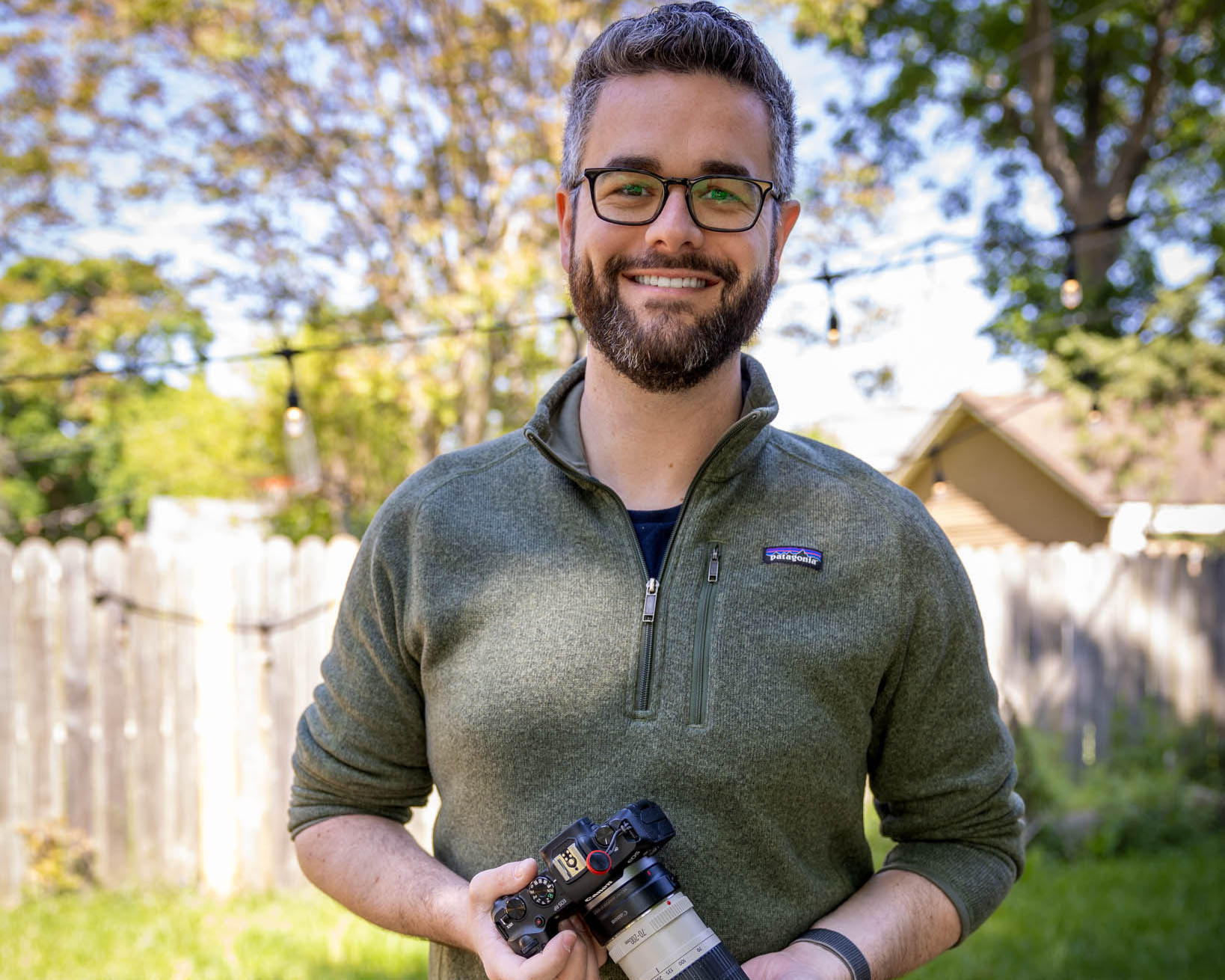The technical aspects of photography, videography, and sound design have always been fascinating to Zack Whaley. He has spent many afternoons casually reading white papers on video compression algorithms or stacked CMOS image sensors. He wants to know every detail about the way a piece of gear works before he feels like he knows how to use it properly.
But his interest in this information is only a means to an end. His true motivation lies in honing his ability to tell a story in the most impactful way possible.
“While the technology can be amazing, our experiences are what make us who we are as individuals, and sharing our experiences is what makes us who we are as a people,” he said. “I love finding new ways to capture and convey what someone has been through.”
The importance of narrative became especially apparent to Whaley in the summer of 2020 while helping gather statistical information for a presentation the racial equity nonprofit One Love Global was creating for an upcoming community gathering. As he pored over the data to discover stark disparities in health outcomes, wealth and housing accessibility between members of different races in the greater Lansing area, he was sure attendees would be struck by the story told by the numbers. Yet, when the presentation was given, it was met with far less outrage than what he had expected.
This led him to reflect on times in his life when some of his long-held beliefs on social issues were challenged. Being raised catholic, Whaley had been taught that anything outside of a “traditional” straight, nuclear family was immoral. He was forced to reconsider his perspective when, in his early twenties, his younger brother disclosed that he was gay. It wasn’t some statistic that had changed his mind, it was his deeply personal connection with another human being.
“It was like a switch had flipped,” he said. “What I had believed was no longer compatible with the way I saw the world. I wasn’t going to compromise my love for my brother, so it had to change.”
He realized that the story of one relatable person could have a much more lasting effect than depersonalized numbers. He hoped that by drawing parallels between shared experiences he could build empathy, and people would come to care more about those around them.
It was with this in mind that he filmed and debuted a pilot episode of a video podcast called Volte Face. French for “about face,” the series was to recount stories of times when people had been forced to reconsider their stance about a particular social issue after witnessing the outcomes of those beliefs.
A few years prior, Whaley had begun volunteering at The Firecracker Foundation, a nonprofit providing healing services to survivors of child sexual abuse (CSA) in the Greater Lansing area.
“As a CSA survivor myself, working with The Firecracker Foundation changed my life immeasurably,” he said. “Suddenly I was surrounded by people whose values and beliefs aligned with mine, who believed that something was very wrong about the way we treated people who’ve caused harm as a society.”
To support his work there, he was trained by renowned criminal justice reform activist sujatha baliga as a restorative justice circle keeper. He later helped pilot The Firecracker Foundation’s Title IX advocacy program. Maybe most importantly, he witnessed time and again how crucial it was for people to feel seen and heard – and how healing it could be.
Whaley found his current role at Safe & Just Michigan at the intersection of his interest in cameras and microphones, his ability to hold space and listen when people need to be heard, and his vision for a future where the focus of our justice system is centered on meeting people’s needs, not ignoring them.
“Growing up, I never had an answer when people would ask me what my dream job was,” he said. “Honestly, I don’t know that I would have had an answer six months ago. Somehow, though, I found it anyway.”
In his role as communications specialist at Safe & Just Michigan, Whaley will be meeting people across Michigan who have been affected by our criminal justice system. He’ll be leveraging his diverse skillset to make sure that their stories are captured and retold in a way that honors the people behind them.
“There seems to be this belief that people who’ve been caught up in our justice system are somehow different – that they deserve to be treated as less than,” he said. “If we could just realize that all of us have hurt others, just like all of us have been hurt, I think we can break down that barrier. I want to uplift people’s humanity in the hopes that we can all gain a better understanding of how to support and protect one another.”

